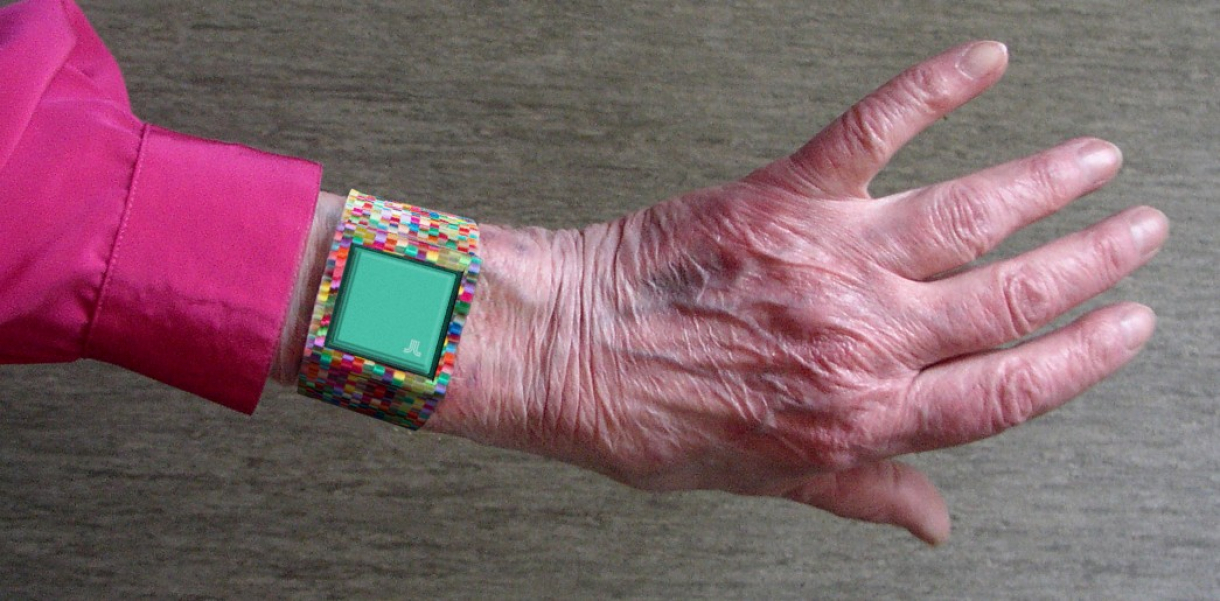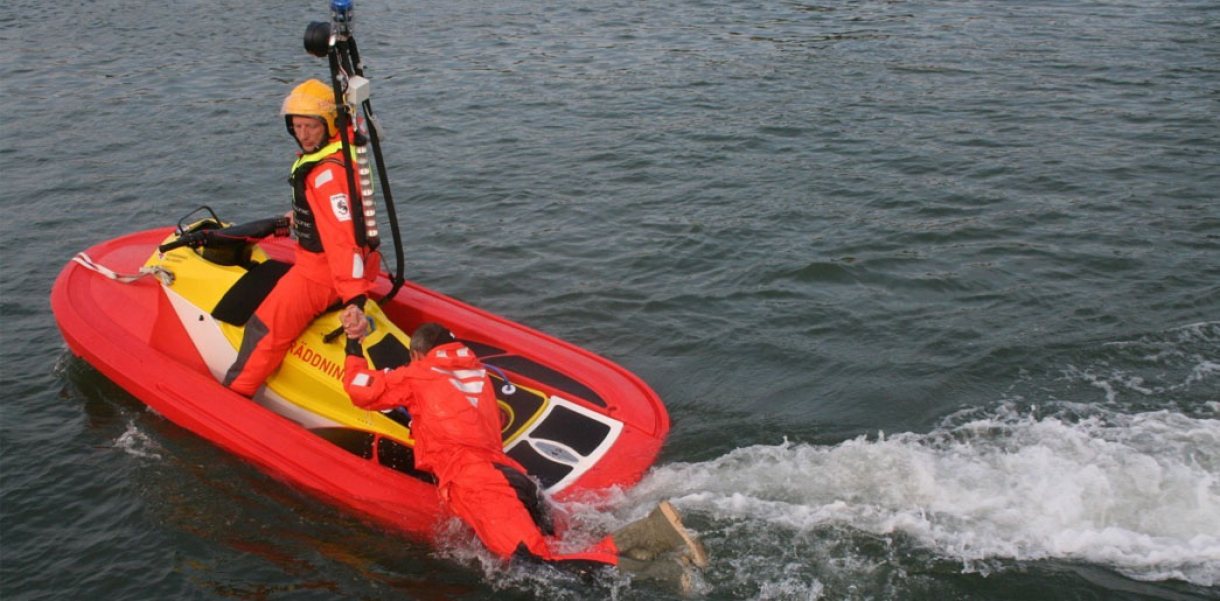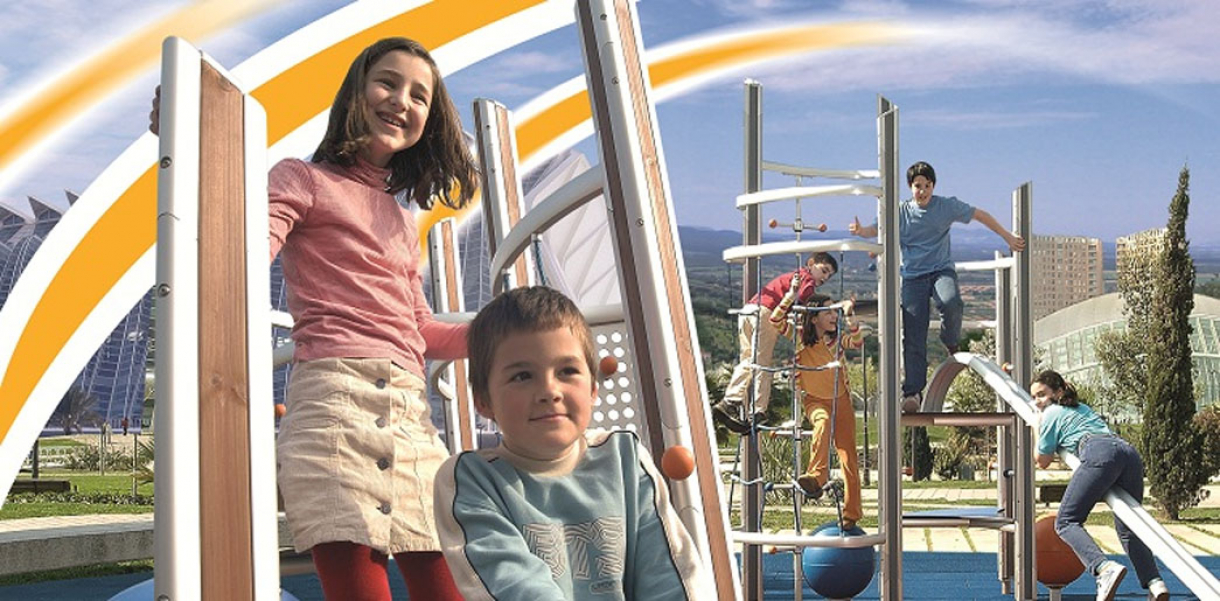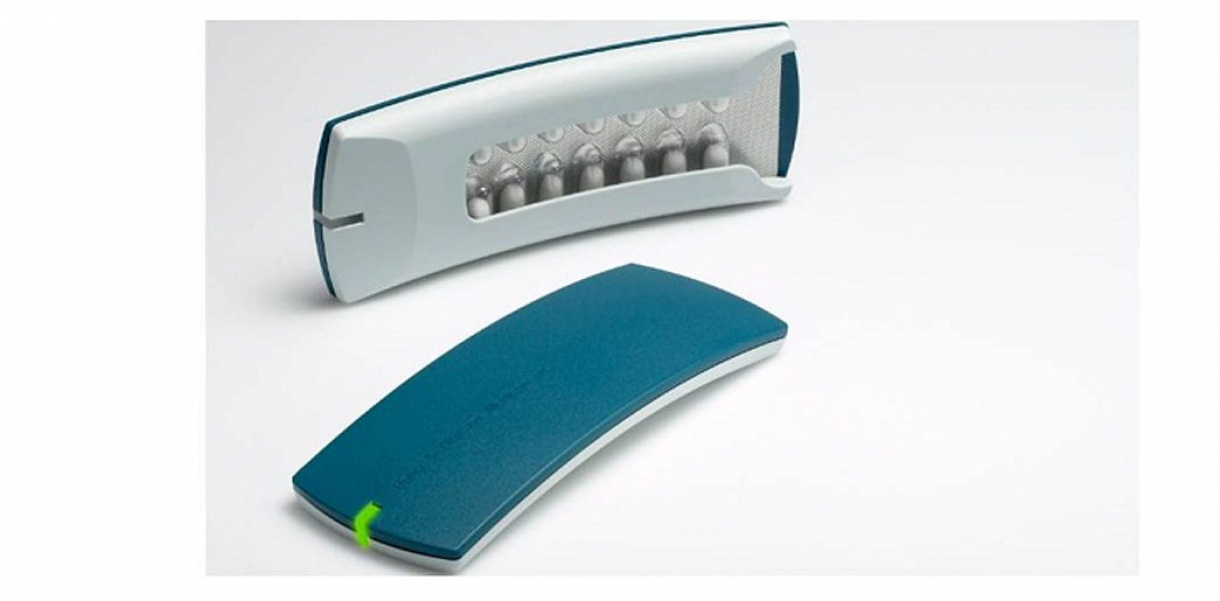This was examined by four different concepts;
Lantgas (Rural-gas): A strategy of how Shell could change their infected brand by selling biogas in a new way. When the branding cost for Shell is so high; why don't they put their money were their mouth is. It ought to cheaper. We design new gas stations and a concept for service and recreation.
Aluminiumetik (The ethics of aluminum): A plastic bag, sponsored by soda producers, for public bins making it more convenient for poor to collect empty cans - A dual strategy of ecology and aid.
Logotypdemokrati (Logo-democracy): A brand, called Public, for taking care of young people’s engagement in politics when the election turnout keeps falling. A combination of branding and the old fashion librarian to help young people find public information that is relevant in their lives and commitments.
Pysselomsorg (Care crafting): Alarm wristband for elderly made out of Hama Beads by young. We were using existing technology with a new aesthetics and production that bridges generations and enables emotional bounds and love.
Functionality and use of design
Lantgas (Rural-gas): Mission: To get in contact with Shell and have a discussion about their view on their own brand and sustainability. Design: We started with the notion that driving, in the country side, is one of the greatest nature experiences for urban citizens. This formed a strategy that selling biogas could be both commercial and improving the reputation of Shell. To visualize the concept a gas station, with a unique relation to nature, was designed.
Aluminiumetik (The ethics of aluminum): Mission: More and more people, in Sweden, earn their living from collecting cans. Is it possible to make it easier for these people and in the same time make recycling more effective? Design: The old plastic bag is redesigned instead of the trashcans to form pockets on the outside of the bin, so cans can be separated from trash and more easily picked up by the collectors.
Logotypdemokrati (Logo-democracy): Mission: How to one increase young voter participation in elections? To create a story of a service which today is missing in Sweden and to start a dialog about the fundamentals of democracy? Design: A brand for the Public society to make it more visible in an ever more attention demanding environment. A new information service for young consisting in a space and information jockey were young can pose questions on for them relevant public information.
Pysselomsorg (Care crafting): Mission: With a growing number elderly in the western world technology is used to make eldercare more efficient. The problem is that to products are cold and ugly looking and unworthy and so becoming a symbol of neglect rather than one of affection. Design: Using an advanced and exiting biometric system that measures blood pressure, movement, temperature and plus but with an new module based design that cost effectively enables beauty, emotion, affection, love, personality and social interaction.
How did this design improve life?
Socialcommercialism is a research project that investigates how design could make it possible to involve ethical, ecological and social issues in today's capitalistic society.
The name of the project, Socialcommercialism, suggest a new ideology, that combine what today seems to be antagonists; social engagement and commercial output. To test this thesis we have formulated four different concepts, where commercial strategies, social issues and design are used to illustrate what the output of this thinking could be. It also refers to "Socialdemokratin" once playing an major part in the forming of the Swedish welfare project, but who today lacks ideas and ideology that are relevant in a complex globalized world.
The concepts derived from our project, Socialcommercialism, was made out of a quite personal starting-point; how we as a designer or architect can relate to personal, ethical and social values in relation to commercial demands. The project did not initially aimed for inventing new objects or solutions for improving life for many, but rather to find a strategy and way of thinking for us to continue to engage in social projects as design professionals. It has also been our ambition to influence the present debate on design.
So even though the project was made out of a quite personal starting-point, the issues we have investigates are of a global concern. We focused on solving problems not so often addressed by designers, but were as the object or system plays a decisive role in the lives of many people. Our aim was as well to use the idea of storytelling as a part of starting dialog around the issues. One of the starting criteria's for us was as to engage in problems that we had a daily experience of. This to have a direct contact with the people and scenarios that we were addressing. One other starting point was to step out of the bound of the object or building. We saw, and still see one of the most important roles for designers and architects to visualize complexities and layout proposal for different scenarios and possibilities of society and industry. That means that we as designers can start investigating new areas such as service and strategy of more non material character. Even though we were focused at concept development we strongly believe that if they were to be realized the outcome would be positive. We also focused on items that are mass-produced to enable our concepts to have an overall mass effect in our global society. The different concepts also have different focus in styling, process and form. Some are more based in form giving and aesthetics others in process and experiment.
Because the project itself consists of four different concepts the best way of explaining the benefits is to read the included flash files. But in short.
Lantgas (Ruralgas): A way to speed up and ease the global transition from gasoline to biogas. This decreasing global heating, illnesses from pollution and bringing a more stable global politics - And thus benefiting us all.
Aluminiumetik (The ethics of aluminum): Helping homeless and poor collecting recyclable cans and giving them a higher income improving the recycling rates in public areas. Thus helping the collectors finding the cans and making the can collecting cleaner and decreasing material waste and decreasing western energy use and pollution.
Logotypdemokrati (Logo-democracy): Increasing voter participation among young people. Helping the European project to become relevant to teens by an everyday presence and by navigating helping them important public information.
Pysselomsorg (Care crafting): Creating a bridge between lonely elders in elderly care and a younger generation. Creating a production effective and beautiful way to share caring and affection via redesign of alarm bracelets used in hospitals.
Drawbacks of life improvement
Working with ethical projects that tries to improve social problems seems to be difficult in a paradoxical way. Because even though the ambitions are high and genuine the end result may actually not at all improve the situation. This is especially true when it comes to mass-produced objects. The dissolve into our world and have wide range of unforeseen consequences and are many times reinterpreted and used in other ways then intended. On the other end of the problem are the complexities of industry and economics. An ecologically sound product can be sold by a pollution creating company bringing them the profit and so on. Many of our projects do in that sense contradict them self in the different criteria's used.
This became very clear to us in "The ethics of aluminum project", where we tried to help the poor that earn their living from collecting empty cans. When we tested the plastic bags in public we realized that we maybe had made it too easy to collect cans and therefore actually made it more difficult for the persons that have to do this to survive. What we initially pictured as a problem, the dirtiness, was actually a precondition for the can-collectors in the sense that the completion was only amongst them who could image to search the trash for the few cents the cans could bring.
So we have decided not to go further and try to produce the plastic bag before we can make a more extensive survey on how this design actually works. Strangely this project has been one of our mostly recognized designs and exhibited several times, so perhaps the project works better in illustrative way, showing the problem of poverty in Sweden.
In the "Rural-gas" project we tried to help a giant global cooperation, Shell, that has harmed people, the massacre in Nigeria, and the environment, the oil platforms in the Pacific Ocean. Of course there is a vast risk that working with such strong part can lead to corruption, even though the intentions are to improve their view of sustainability and concern for the environment.
The alarm wristband was designed with the intention to bring young people closer to elderly and making them feel beloved and less alone. But the fact that the technology in wristband in some way is a replacement for human care can question the project. When we try to bring more sensitivity and thought in a technological product maybe we ease for a greater technologizing in the care of the elderly - This again reducing the human presence in the caring.
Public, the brand we suggest for taking care of young engagement in politics can be seen as an excuse to deal with real problems of politics today, i.e. the lack of ideology.
That reason for our project is to find the opening and possibilities for design today. It's also a way to meet different people and see the aspects that we as designers affect and shape. We believe despite the difficulties of social and ethical progressive design, it is a must to keep on developing and questioning the world as created by matter and ideas. Only this can bring us products and spaces that are emotional, commercial and ethical sound. And because many of our current global problems cannot be solved be other means than introducing new and better conceived objects, services and spaces.
Research and need
A first inspiration to the project came from literature such as No Logo (Naomi Klein) and the present debate on how the capitalistic system and commercialism affects our society and dictates the agenda of, amongst other things, what is being designed.
We started project with trying to find out how the ruling structures in the field of design was constructed. This lead to an extensive mail-dialogue, phone calls and finally interviews with persons in power at both companies and organizations. We realized that design is a powerful tool in influencing the agenda, because it seemed to interest both companies and non-commercial organizations. These interviews formed the background to the project when we started with the four case studies.
Each project had its own unique research, because of the varying topics.
The Ethics of aluminum-project started with a lot of fieldwork; talking to can-collectors, investigating the different bins and interviewing the municipal that take care of them. In the end of the process we contacted the plastic-industry, because even though the project was not realized, it was our intention to mass-produce the plastic bag.
The Logo-democracy-project was investigated from sides simultaneously, we had both dialogue with on one hand ad-firms focusing on advertisement to teens and on the other hand the different political organizations that strive to increase the number of members.
The Rural gas-project was carried out without any cooperation from the company we were addressing, Shell. Instead we hired a car and drove through Sweden, visiting more than 200 gas stations. Information about problems of Shell was easy to find both on the web and in newspapers.
The research to Care crafting started a long time before the project was thought of, since Peter has been working with home-help service for several years before starting design school. Understanding of the technology was gained from Alleato, a company making devices that uses bio-data for informing the career of his or hers health situation.
All projects were followed by a research after their execution to find out if the initial idea really was good and if the proposal helps to improve the situation.
Designed by
Peter Thuvander & Martin Hedenström - Sweden






